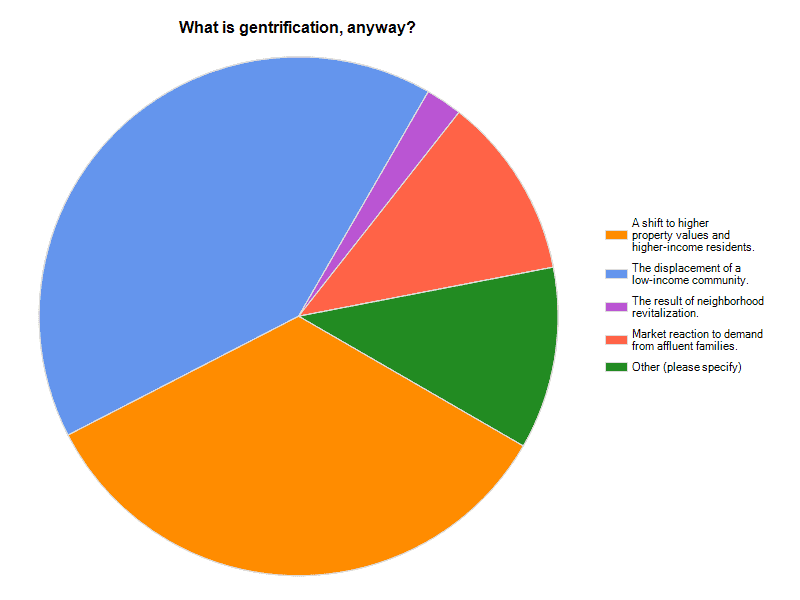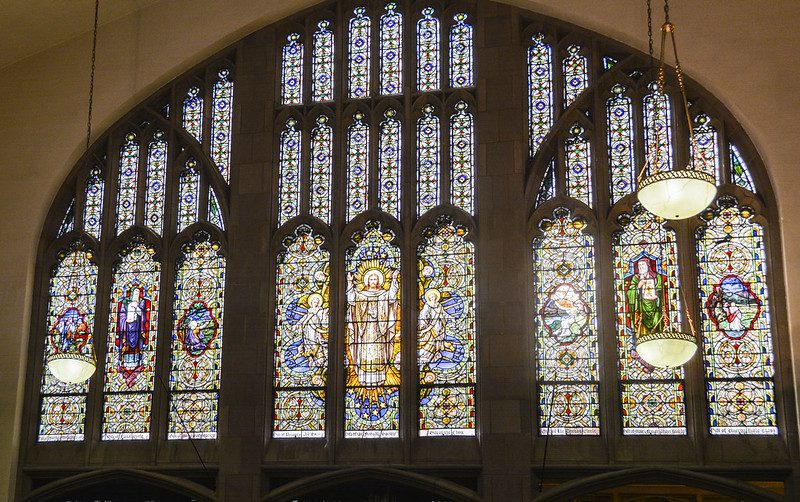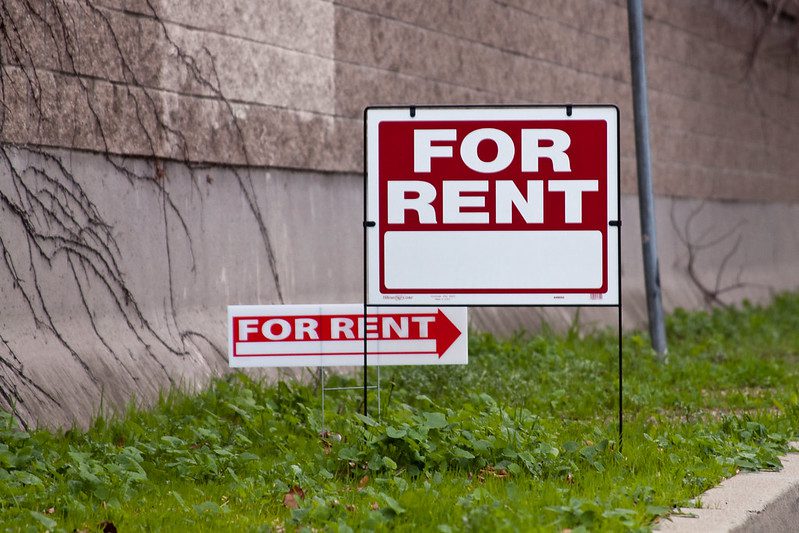Say the word “gentrification” in a room of community development practitioners and you’re likely to get a cacophony of responses.
Alan Mallach sparked a debate over the word on our blog in a piece in which he offered an alternative to Project Rebuild and NSP. The federal programs aren’t effective, Mallach contends, and a better solution is to offer tax credits to encourage investment in flailing neighborhoods.
But readers had questions: What about gentrification? Is displacement inevitable (and sometimes even good)? How does this affect the social ownership of a neighborhood?
[RELATED ARTICLE: What Does the Word “Gentrification” Really Mean?]
“Improvement” and “gentrification” don’t have to be synonymous, Rick Jacobus wrote in response:
Certainly, gentrification is one of the most vexing issues facing community development practitioners. Even where gentrification is only a distant threat (or hope, depending on your perspective) it looms large in any discussion of neighborhood change. And the way most people talk and think about it seems to create a black hole of self-doubt from which no realistic strategy for neighborhood improvement can escape.
When we see any kind of improvement as equivalent to gentrification we get stuck. We need a different definition of gentrification. My suggestion is that gentrification is “when your neighborhood becomes someone else’s neighborhood.” That leaves room for “improvement” to mean “when your neighborhood becomes a better version of your neighborhood.”
Jeffrey Lubell echoed Jacobus in a tweet to Emily Badger, who recently authored this piece in Atlantic Cities, “How Many Gentrification Critics are Gentrifiers Themselves?“
@emilymbadger We need a new vocabulary. #Gentrification is so value laden. We have historic oppty, with right policies, to mix incomes
A few weeks ago, you also had to chance to weigh in on the word in our weekly poll. Respondents were able to choose more than one answer.
-
- Orange: A shift to higher property values and higher-income residents
- Blue: The displacement of a low-income community
- Purple: The result of neighborhood revitalization
- Red: Market reaction to demand from affluent families
- Green: Other

“It’s also a normal, often regrettable market force. Similarly, we as a society don’t much like that Wall Street tends to squeeze out small investors, but we accept it anyway.” —Frank Popper
“The term has come to take on a broader meaning in the minds of many, particularly residents who have seen change come to their neighborhoods. Residents in areas stagnate or in slow decay for many years are very unsettled regardless of economic benefit or loss when faced with rapid transformation. It is shocking and will always result in backlash/pushback. To scream gentrification whether appropriate by definition or not diverts attention from what is important. Investment and development is good and should be encouraged at any income level or speed. The key is to ensure the benefits are shared by all. Labeling high-end development as inappropriate for some areas is misguided. It is in the administration or application of that investment from which inequalities result. Investment from any institution, gov’t, bank, speculator etc… should be encouraged equally, but have the same rules and guidelines applied to all. It is done successfully in free markets around the world, including here and can be done with will and determination.” —Stan C.
“The influx of higher income residents that changes the composition and character of a neighborhood. Historically disinvested communities of color are often targets for gentrification.” —Jamila Henderson
What causes so much debate—the clashing opinions on the effects of gentrification or the definition of the word itself?
Share your thoughts in the comments, or take the survey here.





Comments